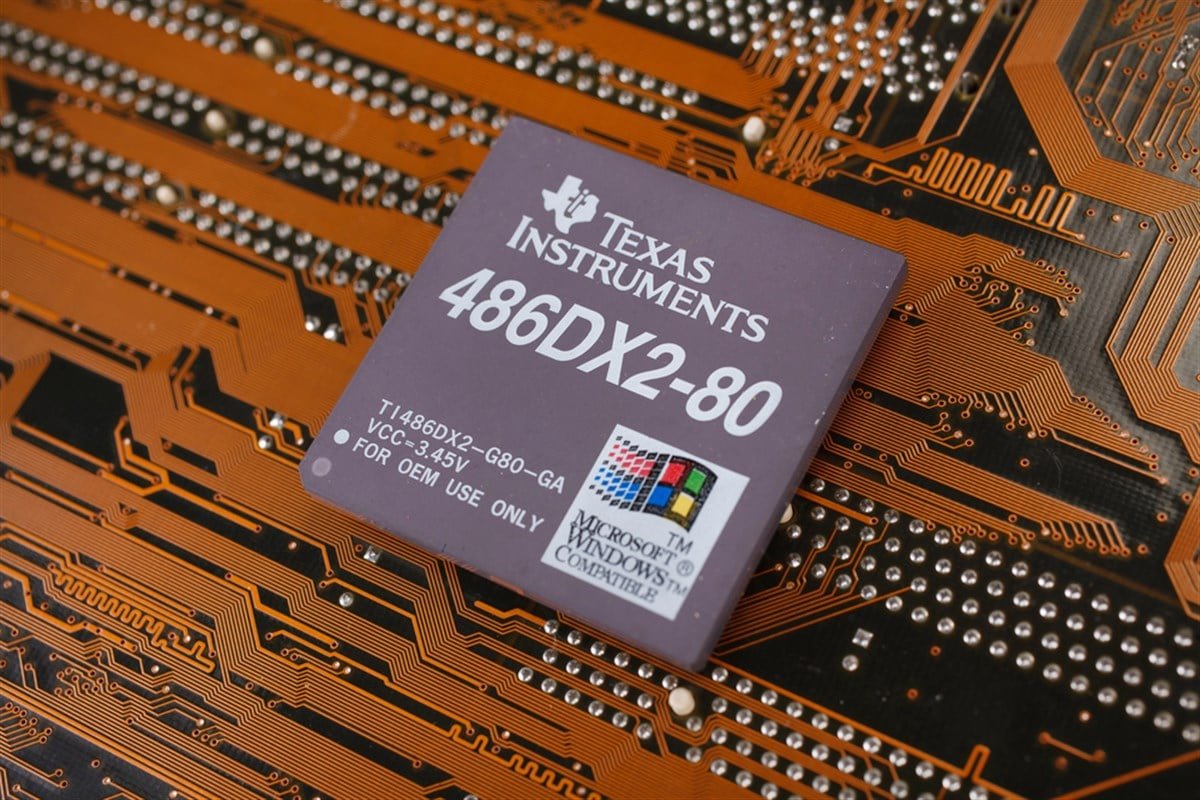Texas Instruments Today
Texas Instruments
(As of 12/13/2024 08:59 PM ET)
- 52-Week Range
- $155.46
▼
$220.38
- Dividend Yield
- 2.84%
- P/E Ratio
- 35.61
- Price Target
- $210.05
Texas Instruments Incorporated NASDAQ: TXN is a name synonymous with innovation in the semiconductor industry. Established in 1930, Texas Instruments (TI) has a long and storied history of adapting to technological advancements and maintaining a leadership position within its sector. TI is now leveraging significant investments and strategic initiatives, including substantial CHIPS Act funding, to reshape its manufacturing capacity and solidify its future. This transformation presents exciting opportunities and potential challenges for investors interested in being a part of a long-term legacy semiconductor play.
Understanding TI’s Core Businesses
Texas Instruments operates through two core segments: Analog and Embedded Processing. The Analog segment provides essential components like power management integrated circuits (IC), which are found in everything from smartphones to electric vehicles, signal chain products that are crucial for sensing and data acquisition, and interface solutions for connecting different electronic systems.
The Embedded Processing segment delivers microcontrollers, which are the “brains” of many embedded systems, digital signal processors (DSP) that power complex calculations in everyday devices, and application processors that are tailored for specific computing requirements.
TI’s vertical integration strategy is a key source of its competitive advantage. Controlling a significant portion of its manufacturing process gives TI greater control over quality, costs, and supply chain resilience. This allows it to deliver consistently strong profit margins. TI’s focus on mature technology nodes, such as 28nm to 130nm, strikes a balance between cost efficiency and reliable performance. This strategy provides a sustainable approach to meeting consistent market demand for reliable chips while managing production costs effectively. This strategic approach contributes significantly to TI’s long-term profitability and competitive position within the sector.
Solid Fundamentals Despite Soft Industrial Demand
Texas Instruments’ stock price has demonstrated a healthy growth of over 22% in the past year, reflecting the company’s resilience. While Texas Instrument’s earnings report for the third quarter of fiscal 2024 (Q3 FY2024) revealed revenue of $4.15 billion, which marginally exceeded Texas Instrument’s analyst community estimates, it marked an 8% year-over-year decline, primarily driven by softer-than-expected demand within the Industrial sector. This revenue dip is a cause for concern. Despite this headwind, the company significantly outperformed expectations in adjusted operating income and earnings per share (EPS). Q3 FY2024 EPS reached $1.47, which substantially exceeded the consensus estimate of $1.38, a positive sign of efficient operations.
The company’s trailing twelve-month EPS of $5.38 underscores its overall profitability. While the price-to-earnings (P/E) ratio of 35.56 warrants attention relative to its growth trajectory and peer valuations, a strong return on equity (ROE) of 29.05% and a healthy net margin further highlight efficient capital use.
The CHIPS Act: A Catalyst for Growth?
The CHIPS and Science Act has provided a significant boost to TI through proposed direct funding of up to $1.6 billion, complemented by anticipated investment tax credits estimated at $6 billion to $8 billion. This substantial injection of capital will support TI’s expansion of its 300mm wafer fabrication facilities in Texas and Utah, enhancing its production capacity and furthering its commitment to domestic manufacturing.
This expansion has the potential to strengthen TI’s position within the industry significantly, boosting its market share and improving its resilience in the face of global supply chain disruptions. However, the successful execution of these expansion plans hinges on multiple factors, including timely project completion, cost management, and ongoing demand for semiconductors. Potential delays or cost overruns could impact profitability and should be considered by investors.
A Legacy of Dividends: Strength and Risk
Texas Instruments Dividend Payments
- Dividend Yield
- 2.84%
- Annual Dividend
- $5.44
- Dividend Increase Track Record
- 21 Years
- Annualized 3-Year Dividend Growth
- 10.51%
- Dividend Payout Ratio
- 101.12%
- Recent Dividend Payment
- Nov. 12
TXN Dividend History
Texas Instruments holds an exceptional track record of dividend growth, with 21 consecutive years of increases. This consistency makes TI particularly appealing to income-oriented investors. The current annual dividend stands at $5.44, translating to a yield of approximately 2.86%. However, a crucial point for investors to consider is the current dividend payout ratio, which exceeds 100% based on trailing twelve-month earnings. While this might be sustainable in the near term due to cash flow generation, it underscores a potential vulnerability.
Long-term investors should carefully analyze TI’s projected earnings growth to assess the sustainability of this high dividend payout ratio. In comparison to competitors in the semiconductor industry, TI’s dividend yield is higher than average. Still, the relatively high payout ratio must be taken into consideration during a financial risk assessment.
TI’s Institutional Confidence and Market Sentiment
Texas Instruments enjoys substantial institutional ownership, approximately 85%, indicating a high degree of confidence from seasoned investors. This strong institutional backing suggests a generally positive outlook on the company’s long-term prospects.
Texas Instruments MarketRank™ Stock Analysis
- Overall MarketRank™
- 96th Percentile
- Analyst Rating
- Hold
- Upside/Downside
- 9.6% Upside
- Short Interest Level
- Healthy
- Dividend Strength
- Moderate
- Environmental Score
- -1.14
- News Sentiment
- 1.32
- Insider Trading
- Selling Shares
- Proj. Earnings Growth
- 13.78%
See Full Analysis
However, current analyst sentiment is varied, with some firms maintaining Buy ratings and price targets of $230.00 and $235.00, and other firms significantly upgrading the stock as high as $298.00. Still, other analysts express more caution, issuing Hold or even Sell ratings. This volatility in analyst ratings reflects the acknowledgment of the company’s shifting strategy and the inherent volatility of the semiconductor sector.
Navigating the Risks
Investing in Texas Instruments, like any investment in the semiconductor industry, involves inherent risks. The sector is known for its cyclical nature, with fluctuations in demand influenced by macroeconomic conditions and technological advancements. Competition is fierce, and TI faces continuous pressure to innovate and maintain its technological edge.
Global supply chain disruptions and geopolitical instability present ongoing uncertainties. Investors must also carefully evaluate the company’s dependence on key markets and its ability to mitigate supply chain-related risks.
A Calculated Approach
Texas Instruments offers a compelling blend of stability and growth potential for investors. Its long history of innovation, strong financial performance, and commitment to returning value to shareholders through dividend growth are undeniable strengths.
However, a high dividend payout ratio, potential sector headwinds, and the inherent cyclicality of the semiconductor industry all demand careful consideration. Therefore, investors should perform thorough due diligence, evaluate the company’s strategic vision and financial performance within the wider market context, and assess their risk tolerance before making any investment decisions.
Before you consider Texas Instruments, you’ll want to hear this.
MarketBeat keeps track of Wall Street’s top-rated and best performing research analysts and the stocks they recommend to their clients on a daily basis. MarketBeat has identified the five stocks that top analysts are quietly whispering to their clients to buy now before the broader market catches on… and Texas Instruments wasn’t on the list.
While Texas Instruments currently has a “Hold” rating among analysts, top-rated analysts believe these five stocks are better buys.
View The Five Stocks Here
Market downturns give many investors pause, and for good reason. Wondering how to offset this risk? Click the link below to learn more about using beta to protect yourself.









